Fritextsökning
Artiklar per år
Innehållstyper
-

Column: ”Cheating with pea flowers and does it matter whether you are right?”
Is it possible to forgive shortcuts or outright cheating in science - if it turns out that the researcher was ultimately right? Anna Törner discuss this topic in a column.
-

The Swedish National Board of Health and Welfare rejects prioritising andrology as a speciality
Male infertility can be linked to a shorter lifespan and several severe diseases, but when couples who want children are examined, the focus is on the woman. Experts in the field claim that andrology needs to become a speciality in Sweden to increase awareness and knowledge. But the Swedish National Board of Health and Welfare says that it is not a priority.
-

How critical are the “Spermageddon” reports? – Researchers call for action
A much talked about meta-study indicates that sperm concentration in men’s seminal fluid has halved in 40 years. Experts in andrology that Life Science Sweden speaks to believe that the results must be taken seriously, and call for action from the Swedish authorities.
-

Editorial: ”AI that both impresses and frightens”
”In the past, I've rarely been particularly impressed by something that was produced by AI. But this is something completely different”, Samuel Lagercrantz writes in an editorial.
-

Hello Jenni Nordborg!
Life Science Sweden would like to know more about Jenni Nordborg and asks her about her new job, why she became a chemical engineer and who her role model is.
-

Rapid development in blood analysis – “Sweden is leading the race”
Thousands of analytical tests using just one single drop of blood. What was revealed as a hoax just a few years ago is now a reality, according to KTH professor and serial entrepreneur Mathias Uhlén.
-

Column: ”Authentic leadership and clear mandates pave the way for more female CEOs”
”I believe that the aspect of having clear mandates and titles on the one hand and women progressing into top positions must be explored further”, Helena Strigård writes in a column.
-

Individual DNA passport could result in fewer drug side effects
You may be required to show a DNA passport when you pick up medicines at the pharmacy in the future. According to a new study, patients might suffer 30% fewer side effects if the drug treatment is adapted to their genes.
-

The government proposes fines for pharmaceutical companies that fail to notify drug shortages in time
According to a compilation from the Swedish Medicines Agency, the number of residually notified medicines increased by 54 % in Sweden last year compared to the previous year. In a bill presented by the government a number of proposals are put forward to counteract the problem.
-

He saved lives with his theories – was ostracised and ended up in a mental hospital
Hungarian doctor Ignaz Semmelweis (1818-1865) undoubtedly possessed plenty of persistence, diligence and sound reasoning skills – but he was hardly blessed with luck and timing.
-

"Unclear proposal from the EU Commission on how to solve the MDR challenges"
Even before the EU regulation on medical devices (MDR) came into force, medical technology companies and doctors were concerned that it would endanger the availability of medical devices in the EU. Unfortunately, the fears have come true.
-
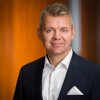
The new Astra Zeneca CEO: “An incredibly exciting phase”
Almost 27 years have passed since Per Alfredsson from Södertälje stepped into Astra Zeneca as a newly hired engineer. After countless different roles, including heading the production of the company’s Covid vaccine, he is now advancing to the absolute
-
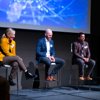
“Everyone is screaming for talent”
Attracting talent is one of the life science industry’s major future challenges, which was one of the conclusions of the panel discussion that ended the New Horizons in Biologics & Bioprocessing conference on 15 December.
-
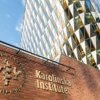
KI får 46 miljoner kronor från Barncancerfonden
Barncancerfonden delar ut 140 miljoner kronor under december till barncancerforskning. Karolinska institutet är den största mottagaren med 46 miljoner kronor.
-

ALS – When the body has given up, but the brain persists
The nerve disease ALS gradually deprives the patient of control over the muscles and, eventually, also of speech. The eyes continue to function, though, and with the help of, among other things, a Swedish-developed invention, communication with the outside world can continue. “It’s their window to the world,” says ALS researcher Caroline Ingre.
-

“Photon counting in computed tomography is the holy grail”
Erik Fredenberg, a researcher in physics at KTH and GE, is working to implement photon-counting CT in clinics. To shorten lead times and reduce the radiation dose in patients, he is setting out to develop a framework for virtual clinical trials for the technology.
-

New study: Post-Covid symptoms are common even after mild Covid-19
According to researchers at the University of Gothenburg, loss of smell and taste, shortness of breath and chest symptoms are the most common complaints after a mild Covid infection.
-
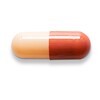
The stomach medication that became the biggest blockbuster of the 1990s
The omeprazole molecule was synthesised as early as 1979, but it took many years before the then Astra had an approved pharmaceutical. Once this happened, a tablet was available that was soon to help millions of people worldwide and break all sales
-

Neanderthal genes and Nobel Prize in a popular lecture at Bioscience
An inherited gene variant from our ”evolutionary cousins” – the extinct Neanderthals – may affect how our bodies break down certain drugs. “It’s only a matter of time before we actively start screening for it,” said KI researcher Hugo Zeberg when
-
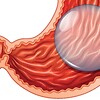
Alert from the Swedish Medicines Agency: Many complications with gastric balloons
before and after the procedure.
-
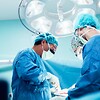
“We need to build flexible operating theatres”
Flexible operating theatres, micro-sensors on surgeons to monitor their well-being and 3D images projected onto organs to be operated on. These are a few ideas that three specialist surgeons are suggesting for the operating theatre of the future.
-
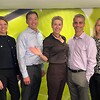
Cytel Inc acquires the SDS Group
The multinational statistical software developer and contract research organization Cytel Inc, headquartered in Massachusetts, USA, acquires the Swedish consulting company SDS Life Science.
-

The TFS family is growing
TFS HealthScience is a European based CRO company with broad expertise and experiences in the biotech and pharmaceutical sector. The company is growing and the TFS family welcomes new members.
-
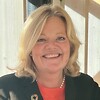
“We need to keep investing in research and innovation”
Jenni Nordborg has worked for just over four years to highlight life science in Sweden. Her mandate as national coordinator ends in December 2022. ““Life sciences has been a long-term priority of governments since many years and I have no doubt that the ambitions will be strong going forward”, says Jenni Nordborg.